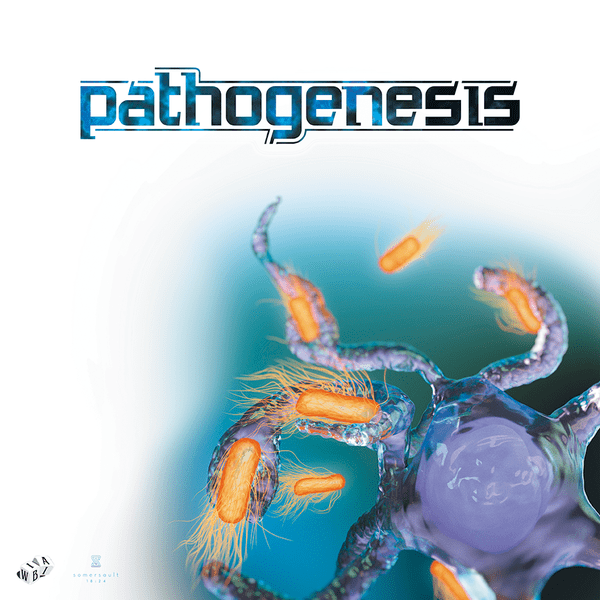Pathogenesis (Second Edition) (2019) Board Game
Pathogenesis (Second Edition) is a card game that was released in in 2019. It is designed by somersault1824 and features artwork by WIBAI Games. The game falls under the categories of card game, educational, and medical, making it a unique and educational gaming experience for players. With its cooperative gameplay and deck-building mechanics, Pathogenesis offers a challenging and engaging experience for 1 to 4 players.
Game Components of Pathogenesis
How To Setup Pathogenesis
To set up the game, each player starts with a starter deck containing initial pathogens and New DNA cards. The body’s three tracts are prepared with their respective barrier decks. The Active Gene Pool is set up with various cards for purchase. The Immune Response deck is also prepared, ready to be drawn from as the game progresses.
Gameplay Mechanics and Game Objective
Player Experience
In Pathogenesis, players take on the roles of bacterial pathogens attempting to infiltrate and damage the human body. The game is scientifically grounded, with mechanics that mimic real biological processes. Players must strategically manage their deck, upgrading pathogens and leveraging special abilities to overcome the body’s defenses. The game offers a dynamic experience with varying levels of complexity and strategy, making it engaging for players who enjoy deck-building and strategic gameplay.
Pros
Cons
Personal Thoughts on Pathogenesis
Pathogenesis is ideal for players who enjoy deck-building games and are interested in a scientifically accurate theme. It is suitable for players aged 14 and above, and it supports 1-4 players, making it a versatile addition to any board game collection. The game’s multiple modes cater to different player preferences, from solo challenges to cooperative and competitive play. However, it may not be the best fit for those looking for a simple, quick game due to its complexity and setup time.
We are supported by our audience. When you purchase through links on our site, we may earn an affiliate commission, at no extra cost for you. Learn more.

